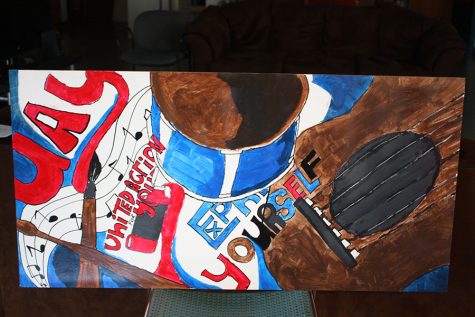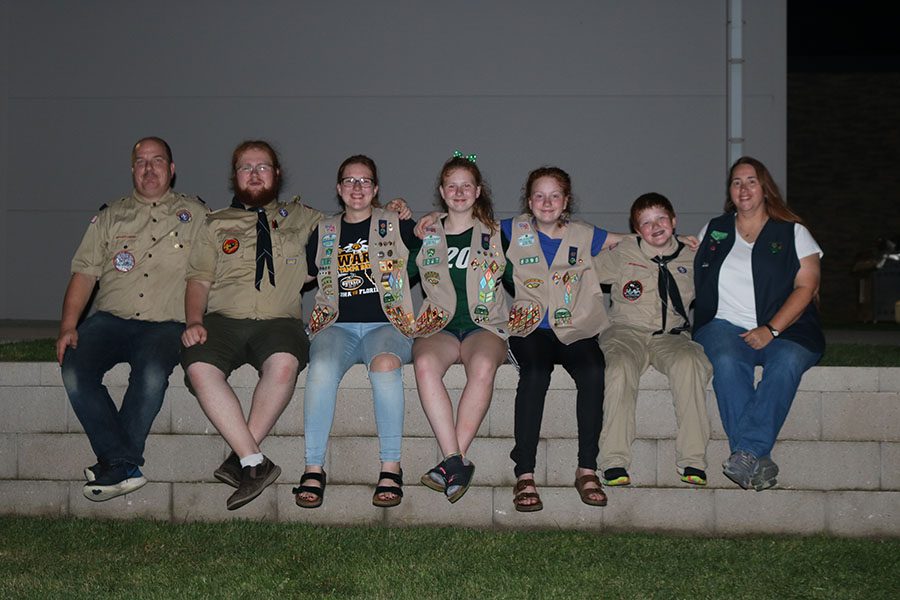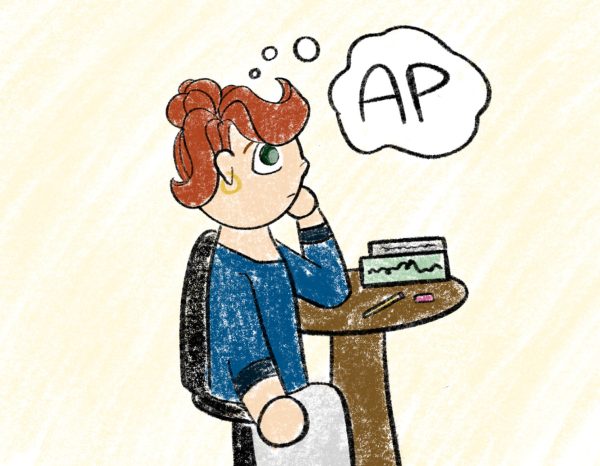Following family traditions
Heidi Schmidt-Rundell ‘21 and Spencer Schmidt-Rundell ‘20 strive to take after their older brothers and achieve the highest recognitions in Scouting.
A legacy is forming in the Schmidt-Rundell family. Although most siblings want nothing to do with each other’s interests, all seven of these siblings have been active in Scouts. Wesley Schmidt-Rundell ’14, the oldest sibling in the Schmidt-Rundell family, started Scouts in 2002. As his other siblings grew up, they joined as well.
“I started cub scouts because both Wes and Trenton did [it] and our parents were like, ‘Do scouts.’ That was [in] elementary school. And I stuck with it,” said Spencer Schmidt-Rundell ‘20.

In high school, Wes got his Eagle Rank, the highest rank in Boy Scouts. Eagle Scouts must complete a project that is beneficial to the community. His project was a mural for United Action for Youth to promote and support the organization. A few years later, Trenton Schmidt-Rundell ’18 got his Eagle Rank for building two pillars at St. Andrews Presbyterian Church made of the same material as the original church.
“They took [the original building] down, and we ended up going after construction. We had permission to knock everything down, and we would climb on the brick piles, and we’d take a bunch of bricks and we’d take them home. And we chiseled them out,” Heidi Schmidt-Rundell ‘21 said.
Now, Spencer is working towards his Eagle Rank and Heidi is working on her Gold Award, the Girl Scouts equivalent of the Eagle Rank. For his Eagle Rank, Spencer is building a meditation path starting from Trenton’s Eagle Scout pillars at St. Andrews. Walking meditation is used to focus, relax and connect to the environment.
“It’s going to be about a [100] foot long path that’s about four feet wide, there’s going to be a six foot by six foot area at the end of it made of limestone and brick,” Spencer said.
The path will lead to Heidi’s Gold Award project, a small apple orchard. The orchard will have around six trees with three different varieties. Each variety will have a different harvest season to prevent a surplus of apples in a short span of time.
“We’ll donate most of [the apples] to the Crisis Center and Shelter House. That way, people can have fresh fruit, because … they don’t always get that,” said Heidi. “For that to be sustainable, we’re going to take some of that fruit, and we’re going to make them into pies or dried fruit or just sell it, and then whatever money we get from that we can use to take care of the trees.”
As a junior, Heidi is mostly still in the planning stage of her project and intends to submit a proposal to Girl Scouts of Eastern Iowa and Western Illinois (GSEIWI) before long. GSEIWI will review her proposal to make sure it fits the requirements. If the proposal is accepted, she can begin working on her orchard.
I’m not trying to shut down Girl Scouts [because] it’s hard to get, but I’ve definitely doubted whether or not I’m actually going to be able to do it.
— Heidi Schmidt-Rundell '21
Heidi is working to join her brothers in being one of the highest-ranked scouts possible. However, the requirements for getting a Gold Award are more numerous than the Eagle Rank requirements. Girl Scouts requires that Scouts’ Gold Awards must be educational, self-sustainable, and there’s a minimum time requirement of 80 hours spent on the project. The Eagle Rank does not require the project to be educational and has no minimum time requirement.
“I was reading [the requirements for the Gold Award aloud while] Trenton was sitting in the room … and Trenton was like, ‘Do they want you to earn it? Honestly, I don’t know, I got my Eagle right, but I don’t know if I would be able to do that. That just sounds like super hard,’” Heidi said. “And I’m not trying to shut down Girl Scouts because it’s hard to get, but I’ve definitely doubted whether or not I’m actually going to be able to do it.”
Another requirement is that Girl Scouts must complete their Silver Award or two journeys, short projects that help the community, to qualify for the Gold Award. Kaitlyn Schmidt-Rundell ‘23 is currently working on her Silver Award.
“The Silver Award is a project like the bronze award, where you do a project with your whole entire group, [but] for the Silver Award, you do a project with a few people,” Kaitlyn said. Her Silver Award project is a Lending Library at St. Andrews. “I’m excited to do [my Gold Award], because the main reason why I’m still in Girl Scouts is because I want to get my Gold Award one day, and that helps with college. It looks good on your job [applications too].
The qualifications for the rank of Eagle Scout does not include doing more than one project. Girl Scouts used to be the same way. In fact, from 1916 to 1939 it used to be called the Golden Eaglet. Girl Scouts was an exact replica of Boy Scouts until they received complaints because it was considered unladylike to do the same activities, so in 1940, Girl Scouts changed.
“Now we have those [activities] coming back, but it’s just slow. And then people get upset … I completely understand, and I’m not trying to argue with people that they’re wrong necessarily. But it was originally the same thing, and people said that girls can’t do those things. And that’s why it was changed,” Heidi said.
“If someone hears you are in Girl Scouts, they’re immediately like, ‘Oh, you just sell cookies, and you have slumber parties all the time and paint each other’s nails’ and all that is absolutely wrong.
— Heidi Schmidt-Rundell '21
The Gold Award and Eagle Rank aren’t the only differences between Girl Scouts and Boy Scouts. The perception of Girl Scouts and Boy Scouts are also different. Because the Girl Scouts’ badges are often less geared to physical activity, Girl Scouts are often not taken as seriously.
“If someone hears you are in Girl Scouts, they’re immediately like, ‘Oh, you just sell cookies, and you have slumber parties all the time and paint each other’s nails’ and all that is absolutely wrong. Like, yes, I sell cookies. And that’s how I [pay for] things,” Heidi said. “And then [if you are a Boy Scout] people respect you for being a Boy Scout.”
“When you discuss Girl Scouts people talk about what you sell,” Spencer continued. “When you discuss Boy Scouts, if you say that you sell popcorn, people will say that they didn’t know that.”
Your donation will support the student journalists of West High School. Your contribution will allow us to purchase Scholarship Yearbooks, newsroom equipment and cover our annual website hosting costs.

(she/her) Bess Frerichs is the online managing and feature editor. As a senior, this is her third and final year on staff. She enjoys reading, writing...

















